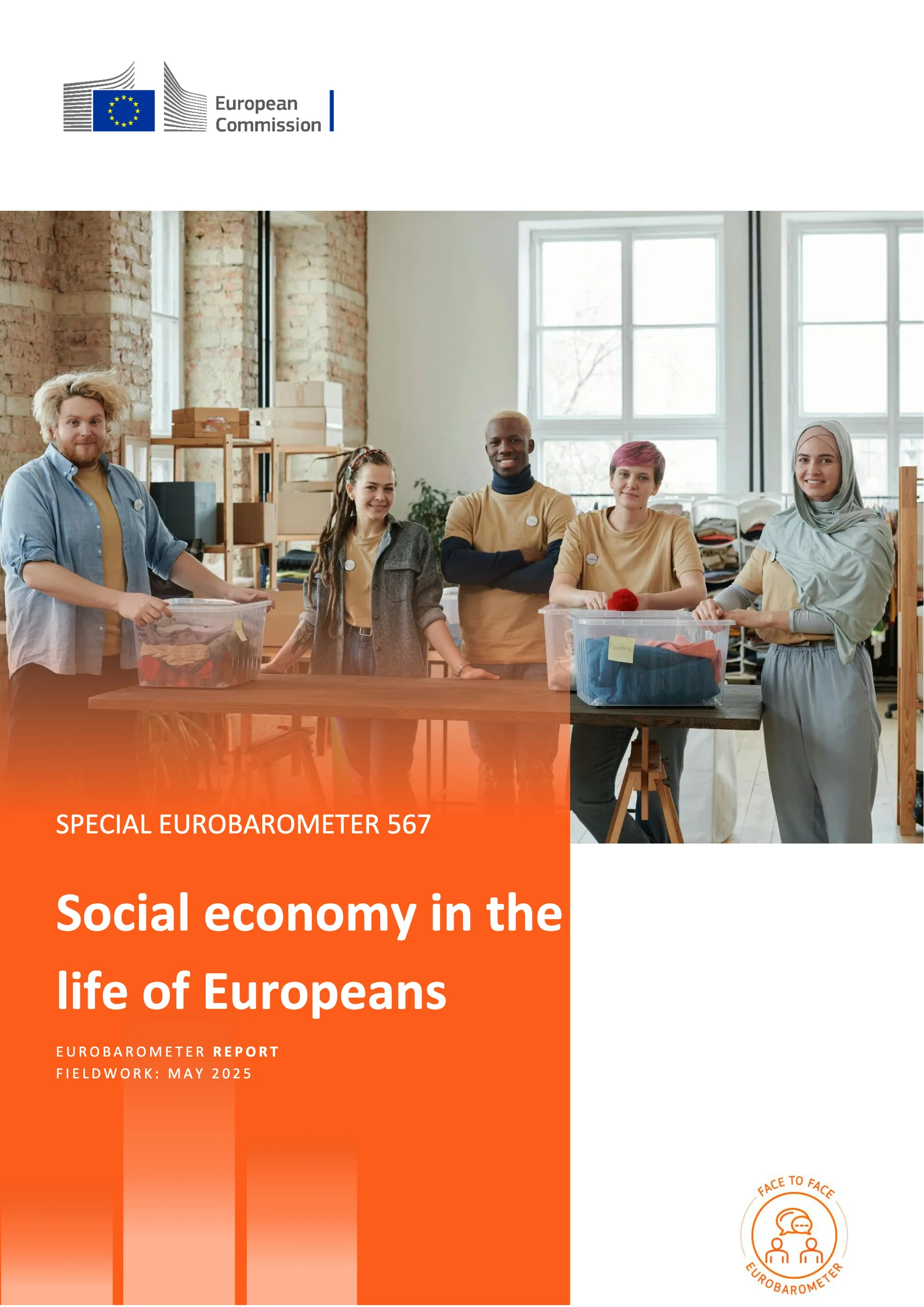AI-Generated Summary
Context of the Report
The report titled "Social economy in the life of Europeans" was commissioned by the European Commission, specifically the Directorate-General for Employment, Social Affairs and Inclusion (DG EMPL). The document aims to capture the public awareness, understanding, and engagement with the social economy across the European Union. It provides insights into how EU citizens perceive social economy organizations and their relevance to societal and environmental well-being.
Key Findings on Awareness
The report reveals that 56% of EU citizens have heard of the term "social economy," with the highest awareness in Malta (82%) and the Netherlands (79%). However, familiarity with the concept is limited; only 12% of respondents are "definitely" familiar with it. The awareness is notably higher among younger individuals and those with higher education levels. This demonstrates a significant knowledge gap that could impact engagement in sustainable initiatives.
Personal Engagement in the Social Economy
Personal involvement in social economy organizations is widespread, with 51% of citizens reporting participation in various roles over the past five years. The most common roles include volunteering (18%) and financial donating (18%). Interestingly, countries like the Netherlands and Sweden show higher rates of engagement, indicating cultural differences in participation levels across Europe.
Importance of Ethical Values
A substantial 94% of EU citizens consider quality important when purchasing goods, with 91% prioritizing price. However, local production (85%) and social standards (81%) are also critical factors in consumption choices. This emphasizes the growing importance of integrating sustainable practices into the housing sector, where ethical considerations are increasingly influencing consumer behavior.
Support Received from Social Economy Organizations
Approximately 33% of EU citizens report having received support from social economy organizations, with 10% benefiting from training, education, or employment opportunities. This support is more frequently acknowledged among younger individuals and those facing financial difficulties, underscoring the social economy's role in promoting social inclusion and sustainability.
Perceived Impact on Well-Being
Around 61% of the population views the social economy as important for their personal well-being, while 75% recognize its societal significance. This perception is particularly pronounced in countries like Malta and Luxembourg, where the social economy is seen as a key contributor to quality of life. The report highlights that the social economy is widely associated with health and social care, as well as education and cultural initiatives.
Public Support for Policy Action
The report indicates strong public support for government strategies to promote the social economy, with 88% of respondents advocating for legislative measures. This support spans across party lines, suggesting a collective recognition of the need for sustainable solutions. The majority also agrees that public funding should be directed towards these organizations, reinforcing the importance of institutional backing in enhancing social economy projects.
Conclusion
In summary, the report paints a comprehensive picture of the social economy's role in Europe, emphasizing its potential to foster sustainable development. It highlights the need for greater awareness and engagement among citizens, as well as stronger governmental support to maximize the social economy's contributions to community well-being and environmental sustainability.
